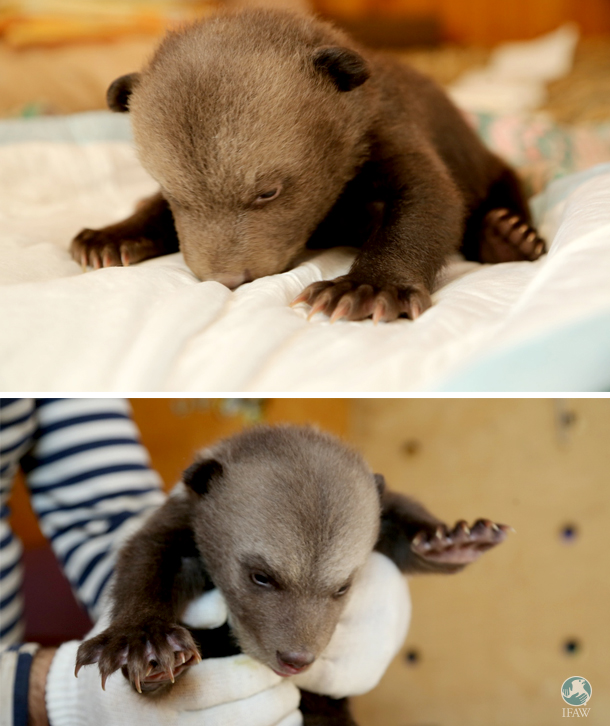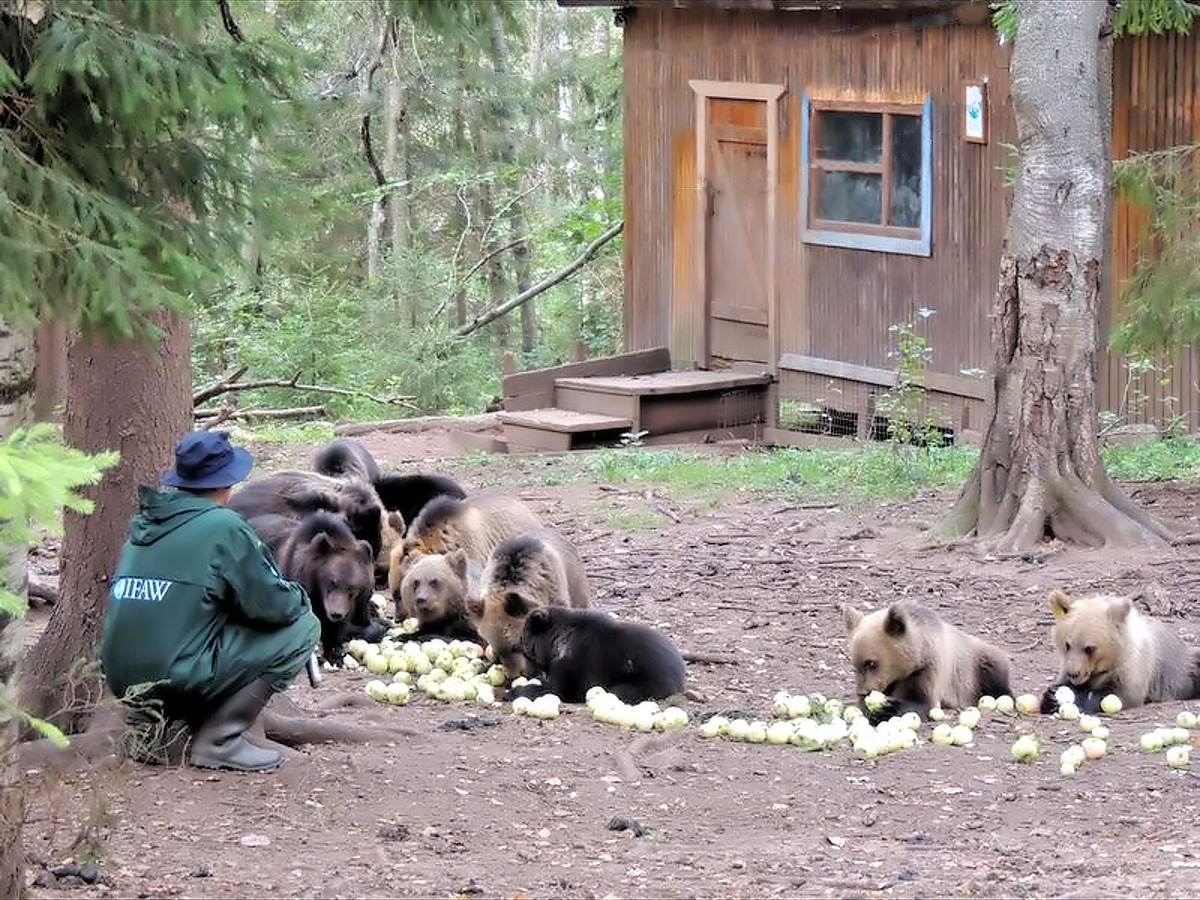
- Inspiring People -
- 3mins -
- 1,023 views
Russian family has saved hundreds of orphaned bear cubs
Based in Bubonitsy, Russia, this groundbreaking project has become a world leader in bear rehabilitation.
Safe wild places for bears are disappearing
Around the world, safe wild places for bears are disappearing. Mankind is destroying bear habitat at an alarming rate and bears are being hunted all over the world. The International Fund for Animal Welfare’s (IFAW) Bear Rescue Center in Russia has successfully returned more than 200 bears to the wild.
Hunting brown bears
For years in Russia, wealthy trophy hunters would pay US$2,000 each to participate in a ‘winter den hunt’ of brown bears. Dogs would rouse bears from hibernation and hunters would shoot them as they emerged from their dens.
If the bear was female, then newborn cubs often faced a sad fate. Some of the cubs would would be left behind to freeze or starve to death and others were given to local villagers as pets or to mobile zoos and circuses. There is also a demand for bear meat in hunting restaurants.
Since 1997, IFAW has supported efforts to rescue and rehabilitate orphaned cubs. We have also been an active campaigner to end the winter den hunt and in 2011, thanks to our efforts, Russia finally passed new ‘Rules of the Hunt’ legislation, which significantly reduces the hunting season for bears and specifically excludes the winter season when bears are hibernating in their dens.
Source: ifaw.org Main Photo: VoicesFromRussia

Saving orphaned bear cubs
The rehabilitation center rescues cubs, some of which are only days old. At IFAW’s Bear Rescue Center, located 350 km northwest of Moscow, bears are bottle-fed and cared for. When they are old enough, they are released into a large natural enclosure where they are able to learn about the forest in a safe environment. And then when bears are old enough and acclimatised, they are released to the wild in proximity to where they were found.
The centre helped build a new shelter next to the forest for the bears with a separate observation room. In addition, they funded the drilling of a well for drinking water, built a den house for the bear cubs and purchased fodder, medicine and other supplies.
Source: ifaw.org

In Russia there are few wildlife laws, poor enforcement and very little deterant
Russia has vast expanses of wilderness, deep forests and tundra where huge brown bears live without the presence of human beings. Yet due to human activity, mining, logging, development, illegal poaching even these supposed safe wild places for bears are being impacted by people. Poaching of protected wild animals is lucrative and driven by the demand for skins and body parts, increasingly as a direct result of the trade in asian traditional medicine. Bears are used for entertainment in circuses and their use is growing. In Russia there are few wildlife laws, poor enforcement and very little deterrent to unsustainable plundering of Russia’s rich natural heritage. Check out the link below to find out what is happening on the ground in Russia, and what you can do to help.

